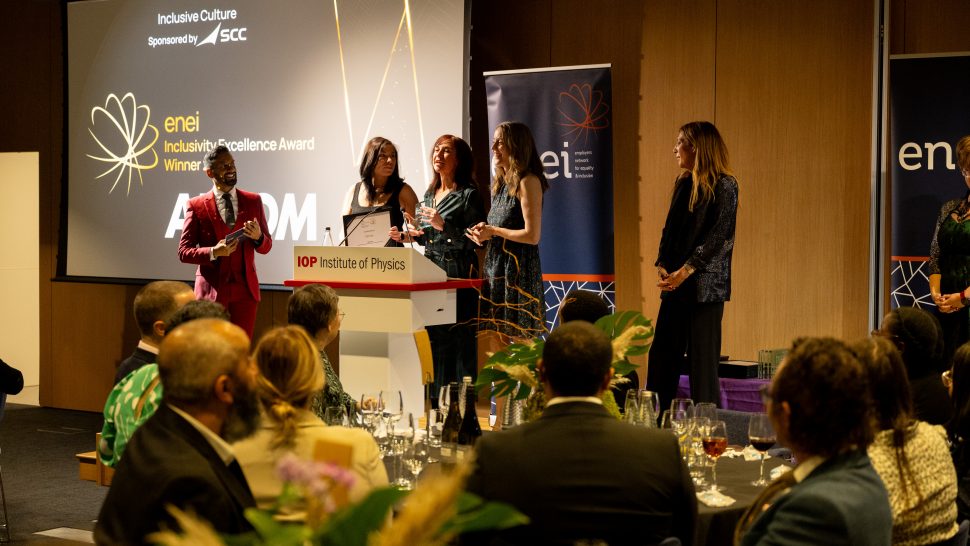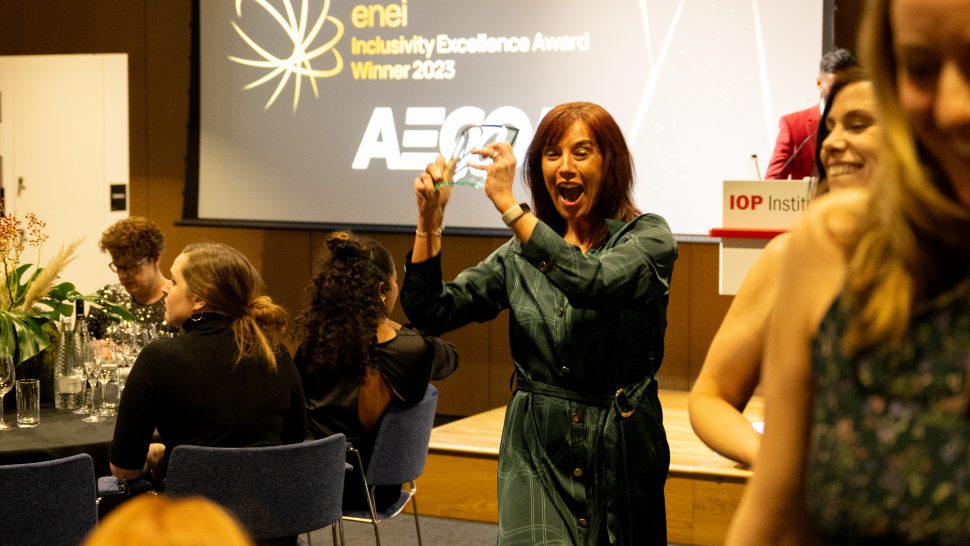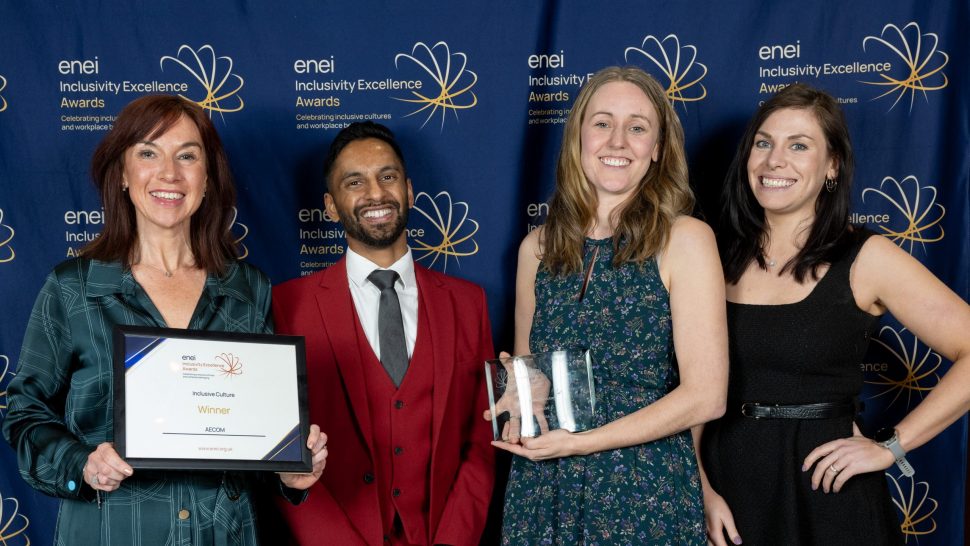AECOM is a multinational infrastructure consulting firm with approximately 51,000 employees.

Challenges
AECOM identified that gender disparity is a well-documented obstacle within the engineering industry, with women making up just 16.5% of engineers. The organisation was also aware of the intersectionality of inequality prevalent in the industry across gender, race, sexuality, and socio-economic background.
AECOM recognised the predicted statistic that only 24% of engineers come from low-income households. They also felt that as clean energy innovations would continue to evolve, it would become evident that diverse talent would be required to drive impactful change.
Innovative actions
AECOM has strategically prioritised inclusion through a comprehensive approach. Key initiatives included flexible working arrangements, intersectional maternity support, and the elimination of biases in job adverts. Collaborations with non-profit organisations and universities have been established to promote diversity in internships and graduate programmes. Recruitment processes now include situational judgment tests to minimise biases, and executive leadership reverse mentoring schemes have been implemented to contribute to continuous development.
To reinforce inclusivity within third-party relationships, AECOM has introduced an Equity, Diversity, and Inclusion (ED&I) supplier code and recruitment agency guidelines. The Global ED&I Steering Committee shapes overarching activities, while a European iteration ensures alignment with regional objectives. Ongoing communication, facilitated through surveys, ‘real talk’ forums, and Employee Resource Groups (ERGs), has instilled a strong sense of belonging and energised community outreach efforts.
Evidence of impact
AECOM has evolved from a basic approach to a comprehensive strategy in the realm of ED&I. In the first year, it secured a Bronze standard in the Clear Assured ED&I benchmark, swiftly followed by Silver accreditation the next year.
Notable achievements have included exceeding targets for increased female representation, with a 32% female European workforce and a 14% female leadership. Additionally, there was a 6% reduction in voluntary turnover of female staff, and proactive measures have boosted promotions from 33% to 36%. Efforts to increase ethnic minority representation have resulted in an overall representation of 7%, exceeding the 5% from the previous year.
Employee engagement surveys revealed high satisfaction levels, with an ED&I-specific survey showing positive sentiments, including 88% feeling that they were treated respectfully at work and 85% trusting their managers.
AECOM’s focus on leadership accountability, the incorporation of ED&I impact into project reviews, and the substantial 18% increase in new bids/proposals highlight the tangible benefits of fostering an inclusive workforce.
The information contained within this resource was accurate at the time of its publication. This article was created in January 2024.
Some additional Onvero resources are for members only. To become a member, please e-mail info@onvero.org.uk
Inspired?
Register to be the first to know about the Onvero Inclusivity Excellence Awards 2024



